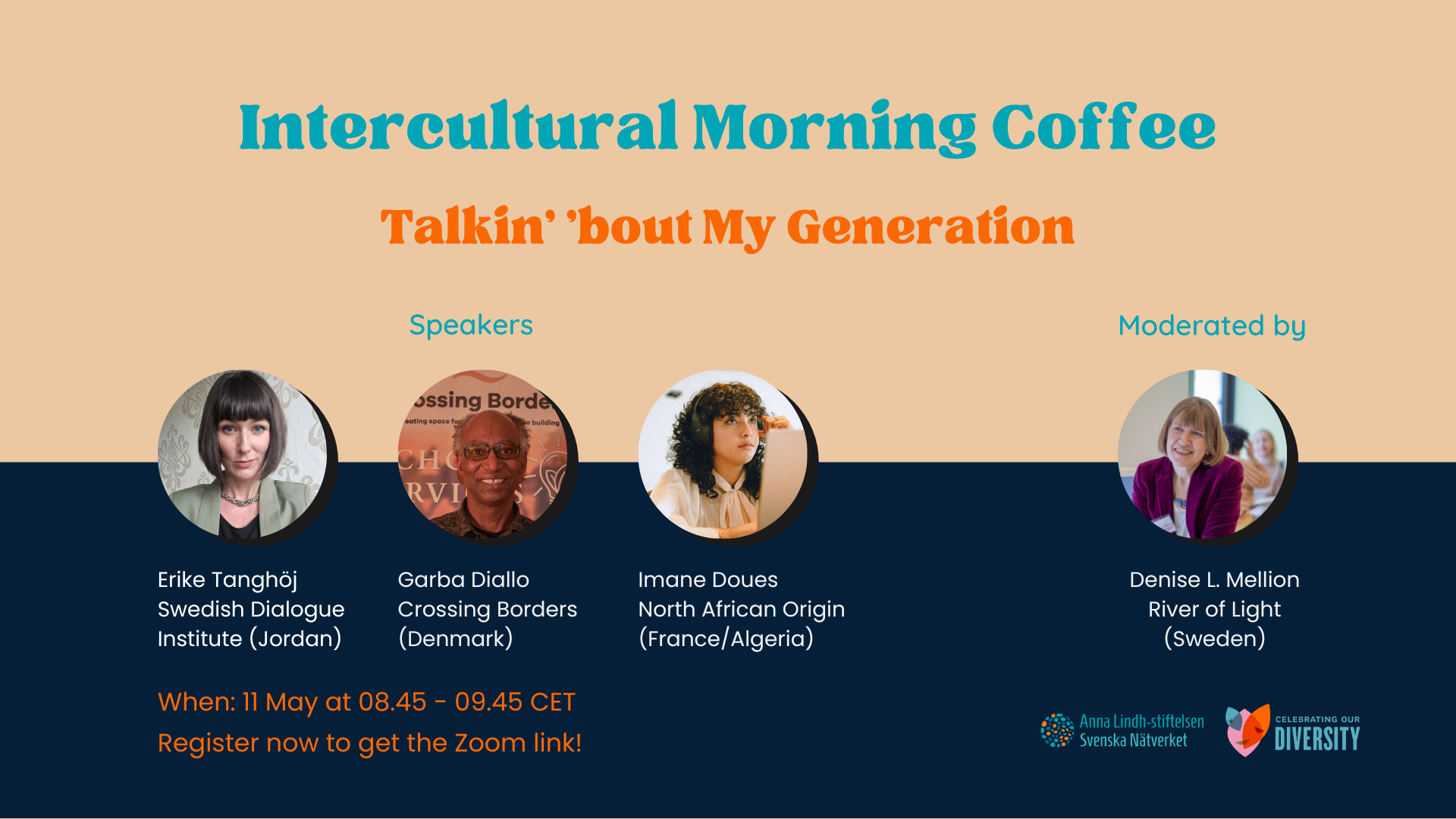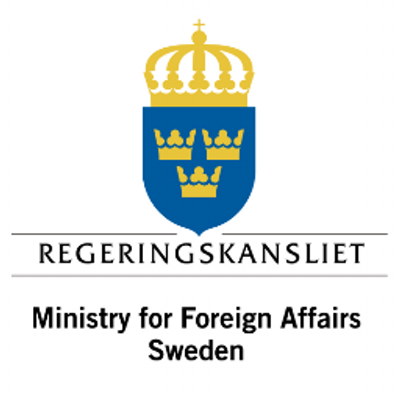
In our fifth Intercultural Morning Coffee, we talked about the importance of intergenerational dialogue as a means of prevention and creating solutions to our global problems. How can leadership and power be shared between generations? What are the most common stereotypes that exist between generations? How do we counter ageism? How do we gain access to the filter bubbles around each generation?
Background
According to the UN, today there are 1.2 billion young people aged 15 to 24 years which is 16 percent of the global population. By 2030, this number will reach nearly 1.3 billion which is 25 %. Globally, about 25 percent of the world is under 15 years of age and 10 percent is over 65 years of age. Africa has the youngest population worldwide unlike Europe which has a higher share of the population above 65 years.
Youth today are challenged by lack of employment opportunities, climate insecurity, armed conflicts and displacement, psychological and mental health issues, consumerism and pressures of materialism, bullying on social media, affordable housing, access to affordable education, etc. Often they blame the older generations for causing these challenges. The generation gap - even within youth groups - is exacerbated by the booming technological advancements and differences in values, beliefs, tastes, culture etc. These gaps can spur social transformation but also complicate communication and cause conflict.
Parents complain that their children do not talk enough to them out of fear of misunderstandings. Many young people believe that the older generation is incapable of offering any solutions to their problems. Seniors in society feel undervalued and that their life-long experiences are no longer relevant in a digital age. This age segregation can be very harmful to our societies. How can we facilitate better dialogue between generations?
We heard from Erike Tanghöj (Deputy Director, Swedish Dialogue Institute for the Middle East and North Africa), Imane Doues (Founder of @northafricanorigin) and Garba Diallo (Director, Crossing Borders) all working with intergenerational dialogue in three unique ways.
Firstly, we heard from Erike Tanghöj who set the scene for us by defining generational identity and explaining generational differences in, values, behaviours, cultural expression etc. She spoke about how these differences can spur social transformation and progress by challenging norms and breaking taboos but also lead to generational gaps that complicate communication, erode social cohesion, and potentially aggravate or instigate conflicts. She explained why intergenerational dialogue is becoming such an important issue from her perspective working in the field of peace and security and international diplomacy. She described the essence of genuine dialogue as human connection and active listening and the importance of finding connectors between people of different generations.
Imane Doues spoke about why she founded @northafricanorigin and the seminal work she does in creating bridges between North African immigrants that grew up abroad and their cultural origins promoting intergenerational dialogue through storytelling, imagery and activities. She talked about the importance of physical proximity in the transfer of cultural values and customs and how this was potentially threatened by migration and the pressure of assimilation but also aided through digital technology. She spoke about the special bond between young people and their grandparents where connections to cultural heritage were stronger and purer and there was potentially more time set aside for cultural transfer. She described the act of henna painting as an example of a tangible symbol of cultural transference between generations – as a literal embodying of culture promoting deep understanding.
Garba Diallo talked from his experience of growing up on the northern bank of the Senegal river where life and death were inextricably intertwined. The mutually beneficial relationship between the material and spiritual world was governed by strict rules and regulations and guarded by taboos. This relationship was common knowledge and passed down across generations through storytelling around the bonfire, at cultural and social events. As the stories were told orally, the storyteller would adjust and adapt their story according to the context and audience. Through modernisation, urbanisation and globalisation and technological advances, this relationship has been severely threatened. Garba believes that we must find new ways of reconnecting with ourselves, with the older generations and with our surrounding environment. He suggested connecting the youth and seniors through a reformed education system resulting in better integrated and connected communities with less loneliness, less feeling of uselessness and less ageism.
The group discussion focused on the lack of opportunities for cross generational dialogue; the fact that everyone loves stories and to talk about food; the benefits of intergenerational learning and the inter-connectivity between democracy and intergenerational openness.
We concluded the session with a quotation from William Safire "Generation gap can be a frustrating lack of communication between young and old or a useful stretch of time that separates cultures within a society, allowing them to develop their own character.”
The morning coffee is moderated by Denise L. Mellion, co-founder of River of Light and member of the Anna Lindh Foundation advisory committee.
Our Speakers
Erike Tanghöj is Deputy Director for the Swedish Dialogue Institute for MENA (Amman). Erike has long-standing experience of working with inclusive peacebuilding in conflict-affected countries. She has held expert positions in both the public and non-profit sector and written a number of publications on Youth, Peace and Security. The Swedish Dialogue Institute is a governmental agency that serves as a platform for contacts and dialogue between Sweden and European countries on the one hand and countries of the Middle East and North Africa on the other. One of their current priorities and concerns being intergenerational dialogue.
Imane Doues is the founder of @northafricanorigin (on TikTok, Instagram and Youtube) . Here she tells stories about North African culture promoting North African culture by speaking about various subjects (stories, history, news, films, society and traditions,etc.). The main goal of these accounts is to create a bridge between North African immigrants that grew up abroad and their cultural origins promoting intergenerational dialogue. This work also generates an interest in North African culture to anyone who is interested. Imane is also a European Solidarity Corps Volunteer at STPLN (Sweden) and a digital marketing student and content creator.
Garba Diallo is the founding director of Crossing Borders (Denmark), International Lecturer and Lifelong Educator. Garba has over 30-year experience in international education for peace, democracy and intercultural dialogue. Garba is also a passionate youth worker in the fields of social integration and inclusion of people with limited opportunities. He is a writer and consultant on Scandinavian, African, the Middle East and North-South current issues and backgrounds.
More information, please contact the Swedish network coordinator Rasha Shaaban
Organised thanks to the support of the Swedish Ministry of Foreign Affairs to the ALF Swedish network, Anna Lindh Foundation and the European Commission.
